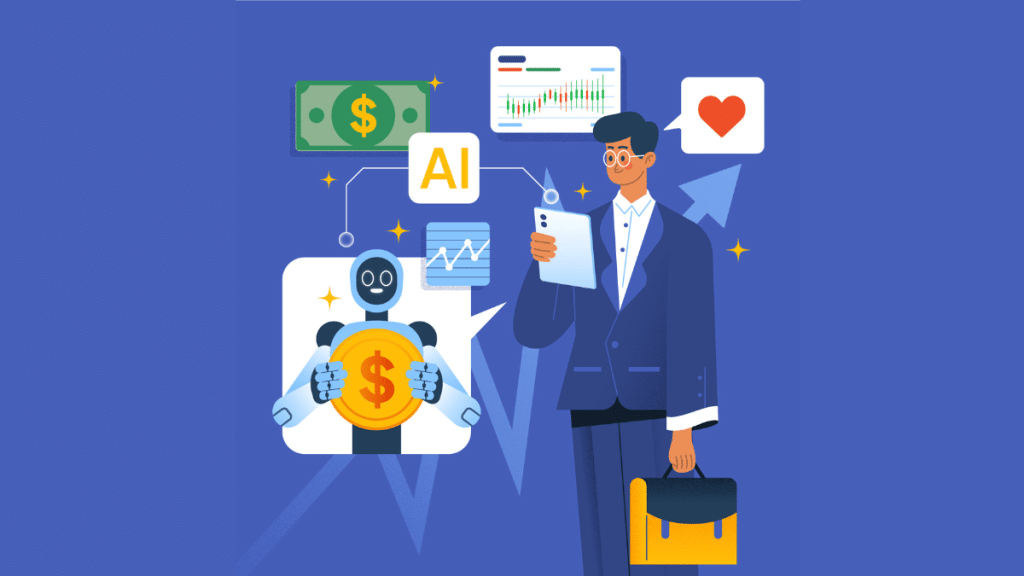Ever felt like everyone’s talking about AI but no one’s quite sure how to actually use it in business? You’re not alone.
In today’s boardrooms, there’s a growing pressure to “do something with AI.” But between buzzwords and unrealistic expectations, it’s easy to get stuck. That’s where an AI business consultant changes the game.
Unlike internal IT teams or freelance developers, these consultants bring a unique mix of strategic thinking, technical know-how, and change management. They’re not just there to throw algorithms at your problems—they’re there to align AI with business goals that actually matter.
Take AI-First Mindset, for example. They don’t just talk about AI transformation.They walk companies through it. From rethinking workflows to upskilling teams, their consultants create momentum instead of confusion.
Let’s unpack how this all fits together and why learning AI for business isn’t optional anymore.
Why AI Consultants Are More Than Just “Tech People”
Here’s the thing: AI isn’t plug-and-play. It’s not something you buy off a shelf and hope it works out.
An AI business consultant dives into the heart of how your company runs—your teams, your tools, your goals and helps you figure out where AI fits without breaking everything in the process. That might mean automating tasks. Or reworking your customer service. Or training your team on AI tools they’re secretly terrified of.
Why does it work? Because they see things you don’t. And they aren’t blinded by “how it’s always been done.”
With someone like AI-First Mindset, the transformation is holistic. They’ll work with leadership to rewire how decisions are made, not just what tools are used. You get hands-on change—not just dashboards and reports.
The Real Benefits of Bringing in an AI Business Consultant
Let’s talk outcomes, not theory. Here’s what companies actually get out of these partnerships:
- · Less Wasted Time: Repetitive, mind-numbing tasks? Gone. AI automates the stuff that bogs teams down.
- · Sharper Decisions: Predictive models + clean data = better forecasts, faster reactions.
- · Fewer Mistakes: Humans miss things. AI doesn’t. Especially when it’s set up the right way.
- · Faster Growth: When your systems run smoother, your business can scale without adding chaos.
It’s not just about saving money—though that happens too. It’s about freeing your people to focus on what they do best.
Consultants from AI-First Mindset build out these systems, run tests, get leadership aligned, and tweak until it actually works in the real world.
Do Business Leaders Really Need to Learn AI?
In today’s landscape, learning the basics of AI is no longer a niche skill.It’s a leadership essential. Whether you’re driving growth, managing operations, shaping marketing strategies, or building products, a solid grasp of AI is as crucial as understanding financial statements. It’s simply part of what it means to be an effective, forward-thinking leader in 2025 and beyond.
That’s where learning AI for business comes in.
Start with the fundamentals. Understand what AI can (and can’t) do. You’ll be better equipped to lead your team, hire the right vendors, and call out bad AI hype when you see it.
If that sounds overwhelming, don’t panic. Programs like AI-First Mindset’s AI for Business Leaders break it down in plain English. No coding. Just clarity.
Here’s what most leaders should aim to understand:
- What is machine learning… really?
- Where does data come in?
- How do algorithms make decisions?
- What’s “explainability,” and why should I care?
Because once you get the fundamentals, you’re no longer a bystander. You’re leading from the front.
Real-World Wins
This isn’t theory. Companies are already crushing it with the right AI consultants behind them.
Gurushala—an edtech platform—teamed up with experts to build an AI-powered question generator. The result? Over 150,000 teachers and students engaged, millions in funding, and content production scaled like never before.
HouseEazy, a real estate tech company, used AI for pricing predictions. They moved from gut-based estimates to machine learning models that nailed market shifts. Users trusted them more. Sales improved. Internal operations got tighter.
And Tootle, a navigation platform, launched a voice-based AI assistant to help users ask about local spots and weather—in real time. It wasn’t just flashy tech. It became a core product feature that people loved.
What do all these stories have in common? Consultants who got it right. Who understood the business, not just the code.
What’s Coming Next (and Why You Should Care)
AI isn’t just “that cool chatbot” anymore. It’s moving into every corner of business.
So what does the future of AI consulting look like?
- · Hyper-specialized consultants: You won’t hire a generic “AI expert.” You’ll hire one who knows your industry cold.
- · AI + Ethics: Bias, data privacy, fairness—leaders will need guidance here, not just compliance checklists.
- · On-the-edge AI: Real-time decision-making from IoT devices and sensors will go mainstream. Think predictive maintenance, not just marketing fluff.
- · Results-first projects: Companies will demand ROI on every AI initiative. Consultants will be held accountable for more than just “innovation decks.”
In short: If you’re not preparing now, you’re already late.
Final Thoughts: It’s Not Just a Trend—It’s a Mindset
Here’s the truth. AI isn’t optional anymore. Whether you run a 10-person startup or a Fortune 500, it’s either going to help you grow or help your competitor beat you.
An AI business consultant doesn’t just save you time or improve your numbers. They change how your business thinks. How your team learns. How your decisions get made.
And honestly? That mindset shift is the most valuable thing you get.
So if you’re serious about leveling up—start with two things:
1. Talk to experts like those at AI-First Mindset. See what’s possible, not just what’s trending.
2. Invest in learning AI for business yourself. Not so you can code—but so you can lead better, smarter, faster.
Because the future doesn’t wait. And it definitely doesn’t slow down for businesses still stuck trying to “figure it out.”
